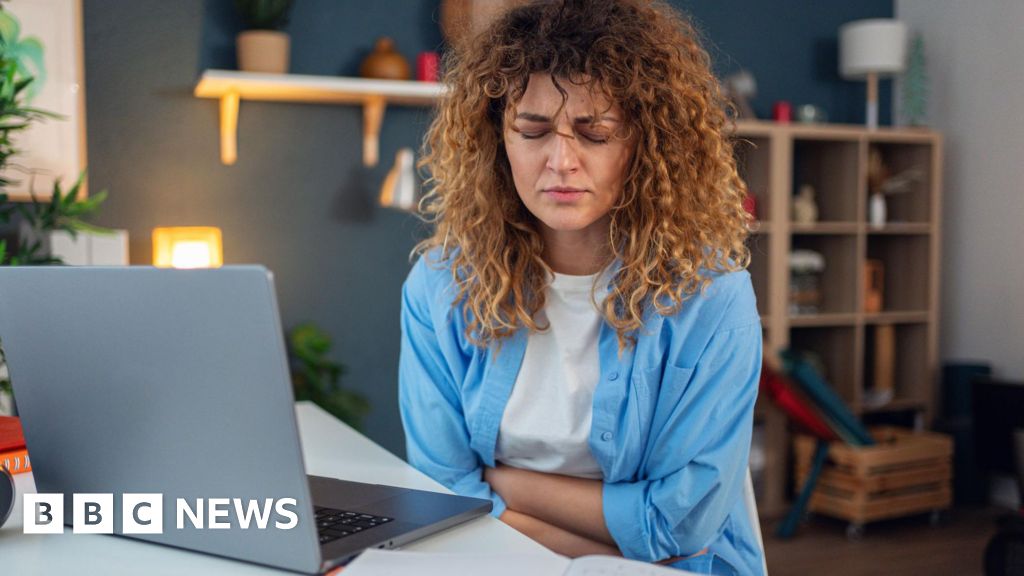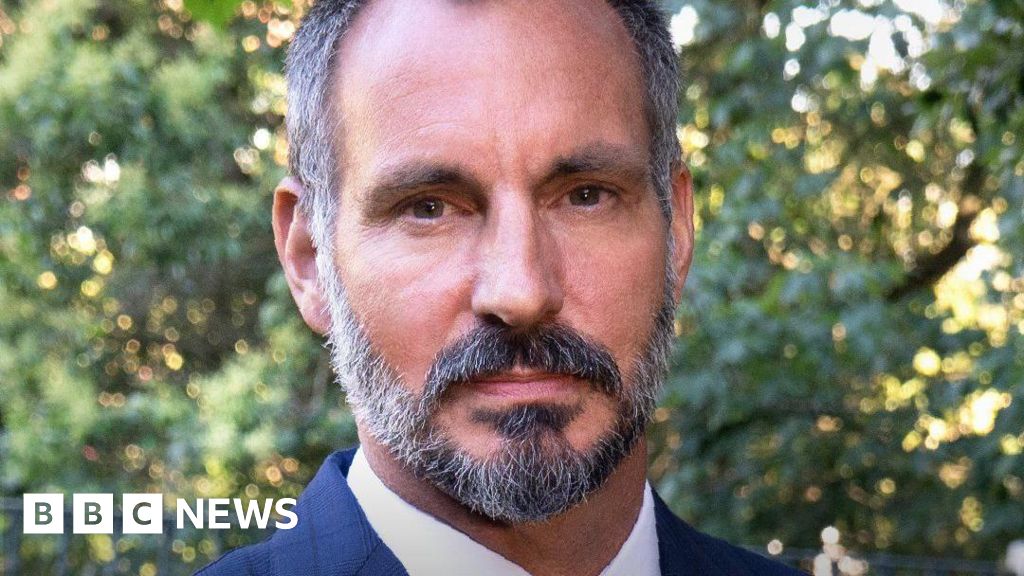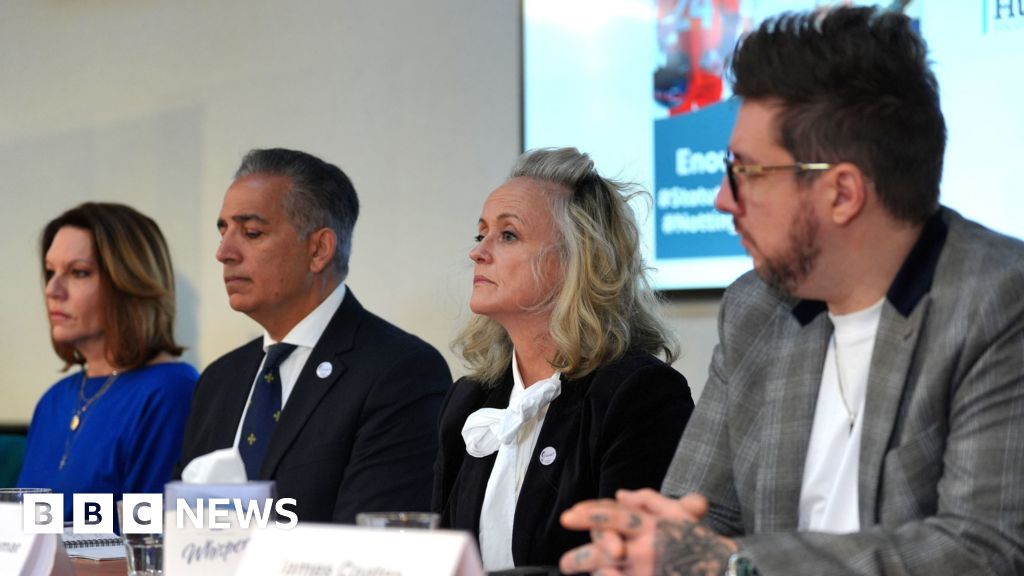BBC News
 Getty Images
Getty ImagesUnique national research for England has demonstrated the “significant” impact the gynaecological condition endometriosis has had on women’s ability to earn and work.
Researchers suggest that following diagnosis, women may be taking lower-paid jobs or working fewer hours.
The charity Endometriosis UK called on workplaces to provide “support, understanding and reasonable adjustments for endometriosis” in order to “retain talented employees”.
A government spokesperson said they were “committed to delivering the healthcare women need, when they need it, so that everyone can lead healthy, productive lives”.
The Office for National Statistics (ONS) has for the first time looked at the impact endometriosis has on labour market outcomes in England.
Endometriosis is where tissue similar to the lining of the womb grows outside it, sometimes causing debilitating symptoms. The disease can cause women to leave, or change, their jobs.
By studying anonymised official medical and payroll data of more than 55,000 women, a decrease in monthly earnings was found among those aged between 25 and 54 in England, after they received a diagnosis of endometriosis in an NHS hospital.
Among those in paid work, there was an average decrease of £56 per month in the four to five years post-diagnosis, compared with the two-year period before learning of their condition.
The research also found the probability of being a paid employee “significantly decreased” after an endometriosis diagnosis, going down by 2.7 percentage points four to five years after diagnosis.
 Emily Jones
Emily JonesEmily Jones was 11 when she first felt her endometriosis symptoms. She experienced extremely painful periods that caused her to vomit and faint.
She was not diagnosed until she was 31, by which time she was working as a chef and was operated on to try to tackle the condition. After being signed off work for two weeks, she returned and knew the job was not sustainable.
“It’s a male-dominated sector and the understanding just wasn’t there. I couldn’t leave shifts early when my symptoms were bad – there was no-one to cover me.”
Emily resigned and made ends meet taking freelance work so that she could pick her hours.
Emily is far from alone in having to adapt her working life to her condition. The research by the ONS, which is the first population-wide analysis ever carried out in England, suggests many women experience similar situations.
Isobel Ward, who led the work at the ONS, said their findings may indicate that following diagnosis “women may be reducing their work hours, moving to lower-paid jobs, becoming self-employed or receiving benefits”.
Endometriosis UK estimates that one in six women with the condition have to leave the workplace.
Emma Cox, chief executive of the charity, said: “Those with endometriosis symptoms shouldn’t have to worry about losing their job, having to change career or feel restricted in the types of work they can do.
“We need employers to understand endometriosis, and overcome myths and embarrassment about periods and menstrual health, and support their employees.”
Ms Cox added that doing so would enable them to “retain talented employees”.
All change
Emily has forged a career in communications, but now – at the age of 44 – says her condition is worsening, and she has had to shift gears in her career.
“I no longer manage a team of people. I’m earning a third less than I was before, I’ve had to sell my house and move to a cheaper area in order to free up some money to pay my bills.”
She says the impact of her endometriosis on her working life has been all-encompassing: “On bad days it’s difficult to just get through the basics of my job. You beat yourself up for not being able to do your best, it’s not good for my mental health.”
Ms Cox highlighted the need for faster NHS diagnosis and access to treatments for women, something the government is working to achieve.
A Department of Health and Social Care spokesperson said: “This government is committed to delivering the healthcare women need, when they need it, so that everyone can lead healthy, productive lives.
“Our elective reform plan sets out how the NHS will meet the 18-week waiting time target, meaning earlier diagnoses and treatment for gynaecological conditions such as endometriosis.”
The ONS research is part of a series of work, funded by the Treasury, for it to explore certain healthcare interventions and diagnoses on earnings and employment status. Other conditions investigated, or due to be looked at, include bariatric surgery, talking therapies and diabetes prevention.

















Leave a Reply